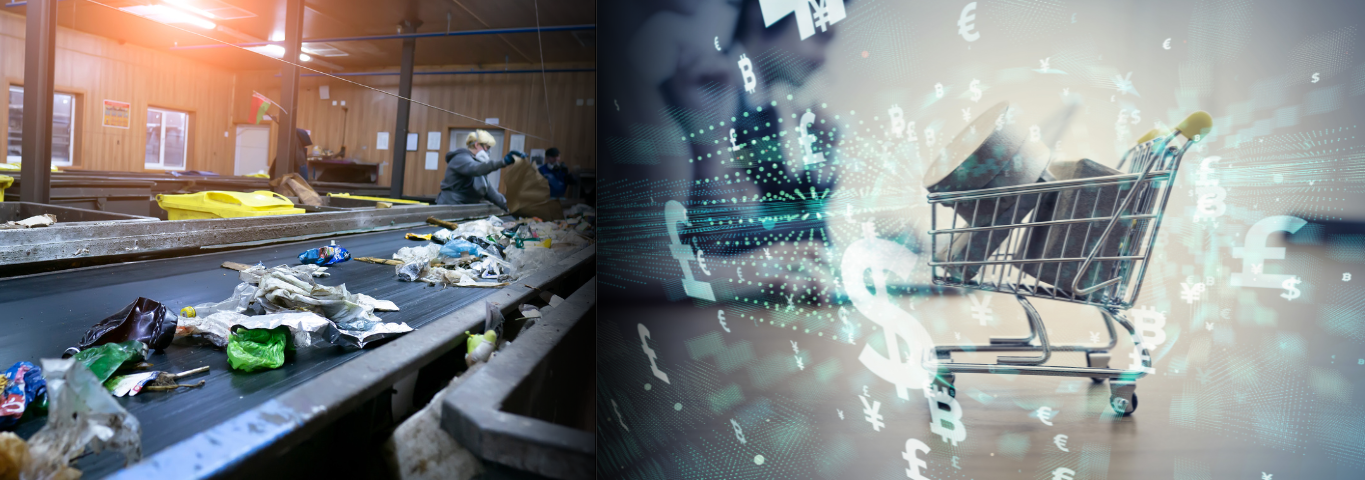The rise of e-commerce has revolutionized shopping, offering unparalleled convenience to consumers. However, this shift has led to a significant increase in e-commerce packaging waste, posing environmental challenges. In response, e-commerce companies are innovating with sustainable packaging solutions to mitigate their impact. Here's how they are tackling the issue.
Is E-commerce Packaging Causing More Environmental Harm?
E-commerce has undoubtedly transformed retail, but its environmental footprint is hard to ignore. Traditional packaging methods often involve excessive plastic, cardboard, and bubble wrap use. This leads to increased waste and contributes to higher carbon emissions due to the production and transportation of these materials.
The problem is compounded by the "unboxing experience" trend, where retailers use excessive packaging to create a memorable opening experience for customers. While aesthetically pleasing, this approach often results in unnecessary waste. Recognizing the urgent need for sustainable e-commerce practices, companies now focus on smart packaging solutions to reduce their environmental impact.
Smart Packaging Solutions
1. Eco-friendly Materials
A primary strategy e-commerce companies employ is using eco-friendly packaging materials. Major players like Amazon and Alibaba increasingly utilize recycled and biodegradable materials in their packaging. For instance, Amazon's Frustration-Free Packaging initiative aims to reduce waste by shipping products in their original packaging, which is fully recyclable and free of excess materials like plastic ties and clamshell casings.
Additionally, biodegradable packaging made from corn starch, mushroom mycelium, and seaweed is gaining popularity, naturally breaking down and reducing the overall environmental footprint.
2. Reusable Packaging
Another innovative approach to combating packaging waste is adopting circular packaging systems. Companies like Loop have pioneered a system where products are delivered in durable, reusable containers that customers return after use. These containers are then cleaned and refilled for future deliveries, creating a circular packaging system drastically reducing waste.
Amazon is also exploring reusable packaging solutions. Their "Amazon Day" delivery option allows customers to consolidate their orders into fewer shipments, often using reusable tote bags, which can significantly reduce the number of boxes used.
3. Right-sizing Packaging
AI in packaging optimization is transforming how e-commerce companies approach packaging. Right-sizing packaging involves designing packages that fit product dimensions precisely, reducing the need for excess materials and minimizing void space. This approach cuts down on material usage and optimizes shipping efficiency by allowing more packages to be transported in a single shipment, thereby reducing carbon emissions.
Startups like Packsize offer on-demand packaging systems that create custom-sized boxes for every order, eliminating waste and reducing shipping costs.
4. Minimalist Packaging Design
Minimalist packaging design reduces the number of materials and components used in packaging. This can involve eliminating unnecessary layers, using single-material packaging, or designing packaging that serves multiple purposes. For instance, some companies are creating packaging that consumers can repurpose, such as boxes that double as storage containers or playhouses for children.
Additionally, minimalist design often involves using inks and adhesives that are environmentally friendly and easy to recycle. By simplifying the packaging, companies reduce waste and make the recycling process more efficient.
5. Technological Innovations
Technology plays a crucial role in developing and implementing smart packaging solutions for e-commerce. Advances in materials science have led to the creation of more robust, lighter, and more sustainable packaging materials.
Moreover, IoT and sensor technology are being integrated into packaging to monitor the condition of products during transit, ensuring minimal packaging is used without compromising product safety. For example, smart labels with RFID or QR codes can provide real-time data about the product's journey, allowing companies to optimize their logistics and reduce waste associated with damaged goods.
6. Consumer Education and Engagement
E-commerce companies recognize that eco-conscious consumers are pivotal in driving sustainable packaging initiatives forward. Educating consumers about the benefits of smart packaging and encouraging responsible disposal practices are essential to this strategy. Companies are increasingly using their platforms to promote e-commerce sustainability.
For instance, providing clear instructions on recycling packaging materials or offering incentives for returning reusable packaging can drive consumer participation in reducing packaging waste.
Conclusion
The challenge of reducing e-commerce packaging waste is significant but manageable. By adopting smart packaging solutions, e-commerce companies are making strides in reducing their environmental impact. Green packaging, recyclable packaging materials, AI in packaging optimization, and circular packaging systems are all part of a multi-faceted strategy to tackle this issue.
As eco-conscious consumers become more prevalent, the demand for sustainable practices in e-commerce will only grow. By continuing to innovate and invest in smart packaging, e-commerce companies can create a more sustainable future for the industry and the planet.
Committing to reducing packaging waste is a crucial step towards a greener, more sustainable world. With ongoing efforts and advancements, the e-commerce industry can significantly lessen its environmental footprint while maintaining the convenience and efficiency that consumers have come to expect.






Comments